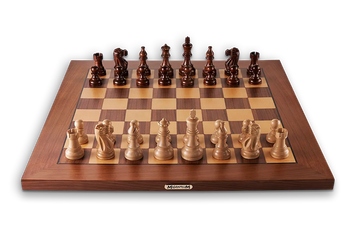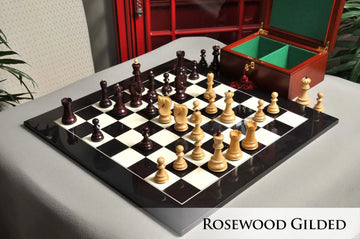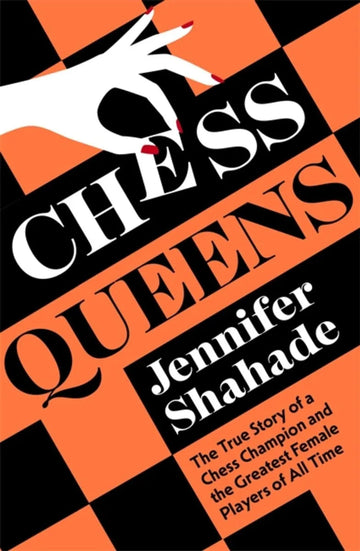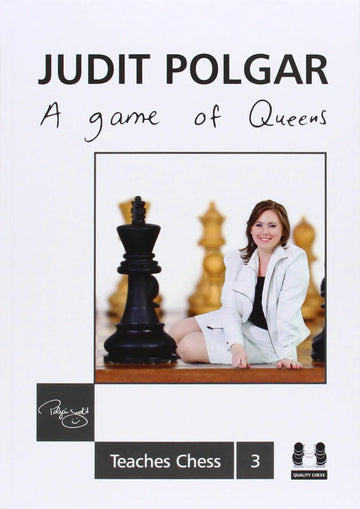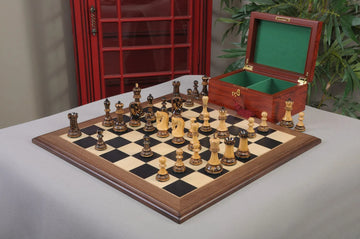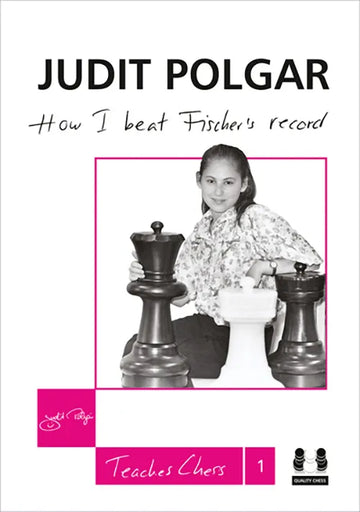Women In Chess: A Tournament History
Why are female chess players so few and far between? Women were restricted from playing at chess clubs and in tournaments until the late 19th century. There are still relatively few professional female chess players. But standout players have emerged in recent years. Here is a tournament history of women in chess.

First Chess Tournaments for Women Held in Late 19th, Early 20th Centuries
The Sussex Chess Association sponsored the first women's chess tournament in 1884. The Soviet Union sponsored the 1924 Women's Championship of Leningrad, the first women's tournament sponsored by a government.
Early 20th Century: Vera Menchik Emerges as Strong Competitor Against Male Players
Russian-born British player Vera Menchik was one of the earliest women players known for her strong tournament play. She won the first-ever FIDE Women's World Championship in 1927 in London. Menchik won 10 games and drew one.

Because of Menchik's influence, the FIDE Girls' Championship also took place in London from 1926 to 1937.
Menchik was also the first to be competitive in playing chess against men. She participated in notable pre-World War II tournaments. Menchik was at the famous 1929 tournament at Carlsbad. She tied for second place with Akiba Rubinstein. Jose Capablanca secured the first spot by half a point.
Once she defeated them, male players joined what became known as the Vera Menchik Club. Some famous players who had the misfortune of joining the club were Max Euwe, Sultan Khan, and Edgar Colle.
Death of Menchik Leaves Women's Championship Vacant
Given the international nature of chess, the state of global affairs affect the chess community. Menchik maintained her title as Women World Chess Champion until 1939. World War II paused the tournaments. Then, she, her sister, and her mother were killed in a German missile attack in London on June 26, 1944. She was 38.
Upon her death, the Women World Chess Championship became vacant. In the winter of 1949-50, FIDE organized a tournament in Moscow to find a new women's champion.
The top 4 of 16 women participants were from the Soviet Union. Afterward, Several champions from the USSR followed. The next three women champions were Ukrainian Ludmilla Redenko and Russian players Elizaveta Bykova and Olga Rubtsova.
Nona Gaprindashvili would become the fifth Women's World Champion by defeating Bykova in 1962. She would hold on to the title for 16 years. At this point, Georgian players dominated the world of women's chess.
1978: Nona Gaprindashvili Becomes the First Female Grandmaster
Nona Gaprindashivli participated in open tournaments and won against Rudolf Servaty in 1974.

Then, in 1977, she tied for first place in an open event. That same year, she tied for first place at Lone Pine in California, beating IM John Peters in the final round. Other Grandmasters at this tournament were Oscar Panno, Pal Benko, and Samuel Reshevsky. This tournament earned her the final norm for her GM title. Finally, in 1978, Nona Gaprindashvili became the first female Grandmaster.
Maia Chiburdanidze Becomes Second Female Grandmaster
That same year, she faced Maia Chiburdanidze for the women's world title. Chiburdanidze defeated her with a score of 8.5. She became the youngest Women World Chess Champion at the time at age 17 and held on to the title for 13 years.
At the 1978 Women's Chess Olympiad, Chiburdanidze won individual gold on board one and helped secure gold for the Soviet Union team. This was the first of five consecutive team gold medals from 1978 to 1990. From 1978 to 2008, Chiburdanidze won nine team gold medals and five individual gold medals, with 89 wins, 73 draws, and only five losses.

In 1984, Chiburdanidze became the second female to earn a GM title.
Chiburdanidze lost her title as Women's World Champion to Xie Jun in 1991.
1980's: Polgar Sisters Emerge
The Polgar sisters are some of the most influential female chess players of all time. Susan, Judit, and Sofia Polgar are three chess prodigies who achieved grandmaster-level performances at tournaments by age 15.
In 1985, Susan Polgar was the highest-rated female player in the world with a rating of 2430. At this time, she was known for not participating in women's events.
Soon after, in 1986, FIDE controversially decided to add 100 ratings points to all women players, arguing that their ratings were lower because they tended to only participate in women's only events. Since Susan didn't participate in women's events, she was the only woman player not to get the points bonus and was no longer the highest rated female player.

That same year, Susan qualified for the Men's World Chess Championship cycle. She was not allowed to participate due to her gender. FIDE later dropped "Men's" from the title.
The Polgar sisters represented their country of Hungary at the 1988 Chess Olympiad in Thessaloníki, Greece and the 1990 Chess Olympiad in Novi Sad, Yugos, earning gold.
Judit and Susan Polgar Become GMs
Judit emerged as the top ranked woman player in 1989 and maintained her position until she retired in 2013.
Susan earned her GM title in 1991, and Judit followed shortly after. At this point, Judit was the youngest Grandmaster in history.
Susan secured the top spot in the 1992 Women's Candidates Tournament, determining who would face Xie Jun for the Women's Championship. Here, she defeated Chiburdanidze. She was required to play an eight-game match against runner-up Nana Ioseliani for the chance to face Xie Jun. After a lottery tie-breaker, Ioseliani won.
In 1994, Susan and Sofia Polgar led the women's team for Hungary to a silver medal at the Chess Olympiad. Judit was instead playing first board for the men's team.
That same year, Susan tied for first place against Chiburdanidze in the 1994 Women's Candidate Tournament. She won a playoff in 1995. She then defeated Xie Jun for the Women World Championship in 1996.
Susan was pregnant in 1999 when she was scheduled to defend her title. She was denied a deferment based on her pregnancy. Ultimately, she lost the title for refusing to comply with match conditions.
1999: Judit Polgar Participates in World Chess Championship
While all three sisters had incredible accomplishments, Judit Polgar is the greatest female chess player ever. She has several incredible accomplishments at tournaments. Here are just some highlights of her career.
In 1994, she won an exhibition match against Boris Spassky with 5.5 points out of 10. That year, she also won the 3rd Torneo Magistral, a Super GM tournament.
In 1997, Judit finished fifth place in the 14th Annual Linares Super Tournament, despite being the second lowest-rated player out of 12 GMs. She placed ahead of Vishwanathan Anand and Vassily Ivanchuk.
In 1998, Judit became the first woman to play in the U.S. Open, tying for first place with Boris Gulko.
Judit became the first woman to play in the World Chess Championship in Las Vegas in 1999. She lost in the quarterfinal round to Alexander Khalifman, who would later win the championship.
In 2000, she would win the Japfa Classic, with Khalifman and Karpov tying for second.
Later, in 2002, Judit would defeat Kasparov for the first time in a rapid match. He resigned and left the venue before media could speak with him.

She placed number 8 in the world in 2004 and achieved her peak rating of 2735 in 2005. No other woman has come as close to reaching the top spot. To this day, she is the only woman to achieve an ELO above a 2700.
Related: Judit Polgar - From GM to Top 10
In the 2012 Chess Olympiad, Polgar had a performance rating of 2744. She earned 7.5 out of 10 points.
Judit Polgar retired from playing chess competitively in 2014.
2000's: The Rise of Hou Yifan
Hou Yifan is the second-strongest female player in history and the strongest player active today. In 2005, she first qualified for the World Women's Chess Championship. She is the youngest person to play in the World Team Chess Championship.
In 2006, she participated in the Women World Chess Championship. She placed 56th out of 64 players but achieved a 2504 performance rating when rated 2269.
In 2007, Hou became the youngest player to win the Chinese Women's Chess Championship at 13.
She became the youngest female Grandmaster at the age of 14 in 2008.

Hou beat Chiburdanidze's record for the youngest Women World Chess Champion by reaching the achievement at 16 in 2010. Overall, she would win four Women World Chess Championships in total.
In 2012, Hou lost a first-place playoff against Nigel Short in the 2012 Gibraltar Masters. She beat four players with an ELO greater than 2700. Judit Polgar was one of them. In 2015, Hou competed at the same tournament, tying for third place and surpassing Judit Polgar's rating.
Hou Steps Away From Tournaments
Later, in 2017, Hou became the first woman to win the Biel Chess Festival with a performance rating of 2810. Since then, she has stepped away from tournaments. She earned a master's degree from Oxford University as a Rhodes scholar and works full time at Shenzhen University as of 2020 and is their youngest ever professor.

